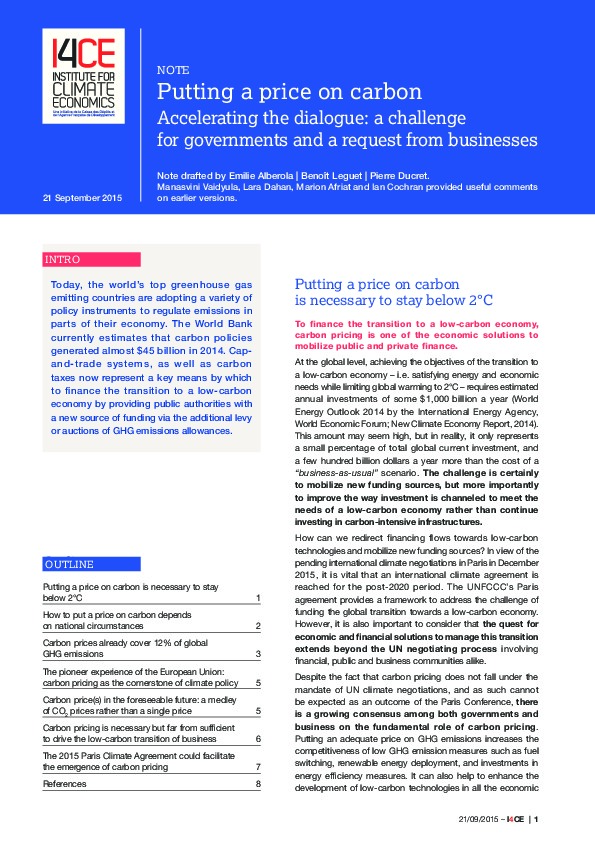Putting a price on carbon – Accelerating the dialogue: a challenge for governments and a request from businesses
Policy brief for public and private decision makers attending the Business Dialogue meeting during Climate Week in New York – September 2015
I4CE – Institute for Climate Economics has produced a position paper on carbon pricing policies for the Business Dialogue meeting organized by the French Presidency at the Climate Week in New York September 26th, 2015.
This paper presents an overview of the carbon pricing issue and highlighting the following conclusions:
- Putting a price on GHG emissions is necessary to stay under the 2°C trajectory
- The choice of instrument used to put a price on carbon depends on national circumstances
- Carbon pricing already covers 12% of global GHG emissions
- The pioneering experience of the European Union is significant in terms of understanding the challenges to putting a price on carbon
- Carbon price(s)? A medley of CO2 prices will be more effective in the future than a single price
- A carbon price is necessary but still insufficient to drive the transition to a low-carbon economy
- The Paris Climate agreement may facilitate the emergence of carbon pricing policies
Download the note here

